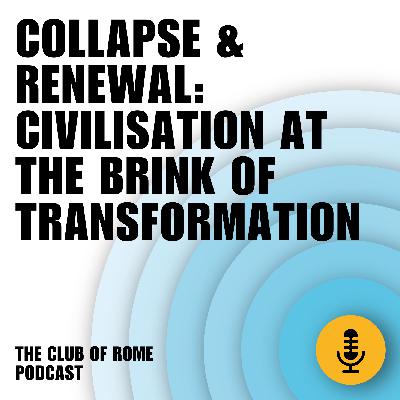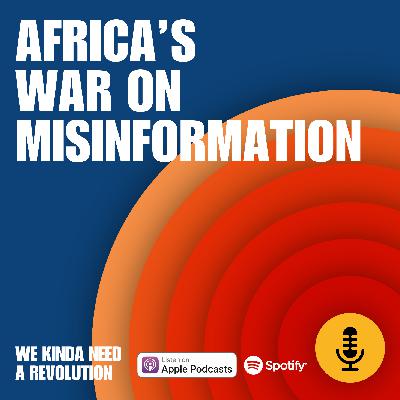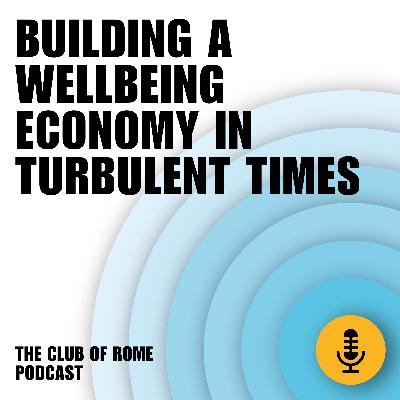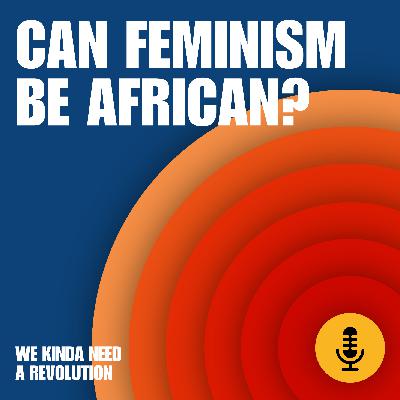From financing change to changing finance with Peter Blom and Till Kellerhoff
Description
From Financing Change to Changing Finance
Today’s financial system extracts value from natural, human, and social capital while increasing the gap between rich and poor. This has significantly shifted the interaction between financial and economic systems from ‘finance supporting the economy’ to ‘the economy supporting finance’.
In this episode, Till Kellerhoff, Program Director at The Club of Rome, speaks with Peter Blom, former CEO of Triodos Bank, member of The Club of Rome and chair of the Club of Rome Rethinking Finance Hub, about the urgent need to transform the financial system. They explore the transition from financing sustainable projects to changing the financial paradigm itself, the concept of financialisation, and how it impacts the real economy, ecological health, and social equity, as well as the possibilities and obstacles in achieving these transformations.
Watch the video:
Full transcript:
Till: Welcome to the Club of Rome Podcast, exploring the shifts in mindset and policy needed to transform the complex challenges we face today. My name is Till Kellerhoff. I am Program Director of the Club of Rome and leading the Reclaiming Economics Impact Hub. I am very pleased to welcome today Peter Blom. Peter is the former CEO of Triodos Bank, which won the Financial Times sustainability bank of the Year award in 2009 and has become a global reference for value based banking. Peter also founded the Global Alliance for Banking on Values in 2009 and was the chair of the board in 2021.Alongside many other things, Peter is a member of the executive committee of the Club of Rome and Chair of the Rethinking finance Impact Hub, which aims to contribute to the evolution of the financial system so it can serve the transformation of our economy to achieve human well being within planetary boundaries. Welcome Peter.
Peter: Thank you for being here.
Till: Thank you for joining. And let's start with a general question on the Club of Rome to which you became a member in 2015. What motivated you to join the Club of Rome back then?
Peter: Well, what motivated me to join was actually the invitation I got, and I was very surprised by that. And what I was surprised of that people said to me from the Club of Rome, you're relatively young. I just had then become 50, but anyway, you have a good track record, so we are very happy to have you in the club. So that was I felt very honored as an as a useful new member to the club, and really was happy that I could contribute to the to the thinking of the Club of Rome. What in that time, was not so exposed anymore as it was in 1973 when I read as a very young guy, this first book, Limits to Growth. But I've seen in the last, I would say, decades two decades, that there has been an increasing interest in the Club of Rome thinking. And that we are very doing very well in transforming this idea of limits to growth, so a more system change approach what is needed today and tomorrow.
Till: Very good. And you mentioned the Limits to Growth, already published in 1972 by a group of MIT researchers, and the Limits to Growth spoke about the material limits to growth on a finite planet. Now your background is in banking and finance. What is the connection of finance and the financial system to this boundaries of growth on a finite planet?
Peter: Yeah, actually, if you look back at this report, it's it's quite a linear approach. It's not a circular approach at all. It's a quite linear approach. But first we had to be more conscious and aware of the linear limitations of our system before we could really think about the circular approach we need today. And in banking, it's very important, and finance very important that you don't look only to the next two or three months, although that happens more and more in banking, but the next 5 to 10 years. So limits to growth, what is possible, how you can grow your business in a sustainable way, is highly relevant for banks. It was already in the 80s, when I started my career in banking, but it's even more today. So circular thinking, not only counting on growth, also considering that substitution from non sustainable business to more sustainable business is a very important aspect of banking today, and so I think the club of Rome's thinking about system finance is highly relevant for the financial industry, the financial sector.
Till: And you mentioned already, one point of finance very often connected with is that it demands short term financial returns. Before we come to the broader systemic shifts of the finance system, is it even possible as kind of one player to change the game? So if the rules are in such game that they value short term returns, how easy is it to change that as one player in this industry?
Peter: I think you cannot change yourself the whole system as one single financial institution. That is one of the reasons where, when we founded this Global Alliance for Banking on Values, I realize already, uh, 20 years ago, that we did quite well and grew very well as a bank, that just being one bank growing is not enough to change the system. Maybe with an alliance, we could contribute, and I think that is happening at the moment. At that I'm also very happy that the Global Alliance is so successful at the moment. But I think what you can do is stretch. You can say from getting even more short term. You can make it slightly more longer term, and can make clear that maybe it's not the next year you're only looking at, but the next five year, the next seven years, maybe the next 10 years. But you can never say, Well, I only look at the long term and not at the short term. Banking is looking at both. But many banks forgot about the long term and only looked at the short term. I think that's what we corrected, in a way, by the practices of Triodos Bank, and I must say, where many other banks also are looking at because they also can see that the system is much more vulnerable than it was maybe 20, 30, years ago, where you really couldn't count on linear developments what you really can't anymore today.
Till: And we saw the vulnerability of the banking sector in the crisis, 2008, 2009. Do you think regulations were put in place that changed the system to the better since then, in the sense of the banks that were too big to fail, in the sense of the public having to buy certain banks out of that, did regulation and governance pick up on that issue?
Peter: Let's stay positive. It helped. It helped to calm down things, to create bigger buffers for the banks, what was good. But they did not change fundamentally the system. So it was still possible to create more money, to create to grow faster the financial sector than the real economy, what, in itself, brings a lot of vulnerability into the whole system, including the society and what we having to deal with as people. So I do think it helped, and we learned from it, but not fundamentally. Fundamentally. We have to look much more closely to what is the role of banking and how can it? How can we make it much more structurally supporting the real economy, instead of making it less vulnerable and slightly more more stable compared to what it was in the past?
Till: Yeah, and you mentioned that certain changes and improvements might have happened, but not on a systemic level. And I think that's one of the goals many Club of Rome members could subscribe to, right achieving something like well being for all within planetary boundaries from a systemic level. How helpful do you say now the financial system today is in achieving this goal, achieving well being for all within the planetary boundaries?
Peter: Well, I think what is a very important notion in this whole financial debate, I would say, is that you can talk about finance change, and that's what we learned as banks. We really started to focus on different asset classes, made some parts of the economy greener. Also thought it was a very interesting new sector for the banks. But what we didn't look at as if on a financial system level, in change finance. How do we change the finance system altogether so we can more, structurally avoid that we are still financing brown assets and not green assets. How do we not continue to tweak a little bit the current system while we are not really addressing the more systemic questions?
Till: It's not enough to finance change, but actually to change finance, and that was the title as well, of a paper you co authored last year entitled From financing change to changing finance. And one of the starting points there is that you speak about the financialization of societies. Could you briefly explain what that financialization is and maybe also how we got there?
Peter: I think if you look at the volumes in the financial sector, you see an incredible growth where in the banking sector, in let's say, in the in the Western world, it was only a percentage of the gross national product. What we did in the financial sector, in banking, and now we have sort of three, four times gross national product. So the importance of the financial industry has become major. We depend on it with our pensions. We depend on it as businesses, citizens, for taxes and so forth and so on. So we financialized a lot of things, and we became dependent on it. And it's a little bit abstract. What do we mean by that? And I think many things we take for granted now and who function in the real economy sphere have been discovered by financial institutions, by asset managers, including CO2 carbon emission markets and biodiversity, and you name it, everything can be financialized and be brought to a market. And I think we have to think much harder about where a market is a good thing to help to allocate resources, and where markets only create more dynamics and more growth and actually create a problem because there i
























